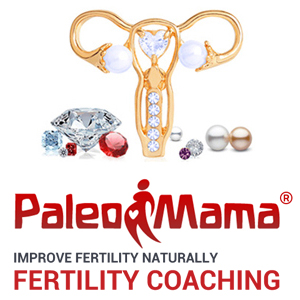Is egg freezing good for you?
Freezing eggs: The best backup plan available?
Many compare egg freezing with the invention of the contraceptive pill invented 50 years ago – both represent revolutions in terms of giving women more freedom in their reproductive decisions. Only that the pill has created a detachment of sexual intercourse from actually getting pregnant, and has given millions of women the illusion that they can create a family later in life, whenever they decide to.
Freezing eggs (oocyte kryopreservation) is similar in terms of supporting reproductive procrastination even further, toward the age 40 and above.
The reality is, unfortunately, that eggs become fewer and less viable as women age. One third of women over 35 report infertility problems.
By the time we come into our 40s, up to 90% of our eggs are not able to produce viable embryos any more, and by the time we are 45, even with IVF and ICSI, chances of a successful pregnancy fall to under 5%.
These facts are so brutal that many women would rather choose to ignore them than to do something about it, even well-educated women.
Currently, the only way to preserve some of a woman’s fertility and to relieve much of the pain and anxiety would be to freeze eggs. Unfortunately, this is a method that works best for young women with good quality eggs. Therefore, if you are 35 or above, you should focus instead on improving fertility in terms of improving the quality of those eggs you have left and generally controlling your fitness, nutrition, and health before trying to get pregnant.
Back to the egg freezing topic: eggs belong to the most delicate cells in the body – they are huge and so much filled with sensitive materials that the right technique to freeze and thaw them did not exist until just a couple of years ago! As a comparison, your boyfriend’s sperm you could almost freeze at home and still be sure that, someday after thawing, there will be enough guys left and viable enough to produce more babies than you can handle.
With eggs, however, the situation is different: they are much larger and the ice crystals that form can destroy them as they thaw, so even with the new egg freezing technique (vitrification) you need to freeze about 20 (careful: it may be many more if you are older than 25 years!) to be reasonably certain that you will someday become a mother of offspring that genetically belong to you.
Unfair, right?
Although both sperm and egg contribute equal amount of DNA to the embryo, when it comes to manipulating them in the lab, it compares to thawing a piece of frozen wood with a package of fresh strawberries – that is roughly the challenge with which embryologists have to cope.
For that reason, it is essential to ask for the success rates and choose the best clinic possible.
Things to consider before freezing eggs

Freezing eggs is VERY different from freezing sperm. Image credit: brian holm at FreeDigitalPhotos.net
As you realize, freezing eggs is not a perfect solution, and young women are much more likely to benefit from it.
Even with frozen eggs, things can go wrong. You may find out that the procedure of taking eggs out is harsher than you were imagining (ovaries need to be stimulated with hormones, follicular development followed with ultrasound, and eggs finally retrieved, often under 5–10 minutes total anesthesia).
Most young women respond to hormonal stimulation pretty well and will reach the number of 20 good quality eggs more easily than women who are 35 or above. This means older women will need to repeat the procedure, which is costly in addition to being unpleasant.
Either naturally or via IVF: you are more likely to get pregnant if you improve your egg quality.
Along the way, one may be confronted with unexpected issues, such as: what should you do if a doctor lets you know your egg reserve is quite diminished already and freezing is not a reasonable option anymore?
In this case, it might be a good idea to start making a baby immediately, or at least have your eggs fertilized with your boyfriend’s (or donor) sperm and freeze embryos for the future.
The reason is that embryos are not as sensitive as single eggs when thawed some years later, and have much better chance of surviving and giving healthy pregnancies and live births.
Also, a woman‘s body is made so that it can relatively easily sustain pregnancy at 40 years of age or above, which is not the case with conceiving. The disadvantage, of course, is that embryos made with a donor cannot be mixed with your future husband’s sperm any more – these children would only be genetically related to you.
A lot to think about, right?
If you are young, you may not like reading this at all (or even find it radical) and would rather prefer to create a family in the traditional way. If you are older, all this can make very much sense and you can feel bad you did not know about the egg freezing before. One way or another, this issue is still socially delicate and only you can decide how you feel about it and how far you want to go to in creating your backup solutions in life.
To summarize, freezing eggs is like having insurance: you have it in the hope you’ll never have to use it. Only that, we choose insurance that will buffer us from scenarios that are quite unlikely to happen, yet we still have to learn to invest in those scenarios that really make a long-term difference in life.
Unfortunately, egg freezing is still relatively expensive: the procedure, with all extras around it, can easily sum up to a few thousand Euro (if you live in Germany; in the US it will cost more).
However, some might say that egg freezing is a perfect example of where our parents can help with financing? After all, it is investment in their grandchildren!
If I had a daughter instead of a son, I would certainly raise her to be aware of this issue from the early age and, instead of buying her a new car or something else when she graduates (not to mention supporting her esthetic surgeries or fancy travels), I would rather buy my daughter some time and give her a chance to someday combine the career and family in the way she decides to.
My two cents.
Helpful books:
References:
1. ESHRE Task Force on Ethics and Law, Dondorp W, de Wert G, Pennings G, Shenfield F, Devroey P, Tarlatzis B, Barri P, Diedrich K. Oocyte cryopreservation for age-related fertility loss. Hum Reprod. 2012 May;27(5):1231-7. Epub 2012 Feb 21.






